The African Woman is a film of genre Drama directed by Margarethe von Trotta with Barbara Sukowa
The African Woman (1990)
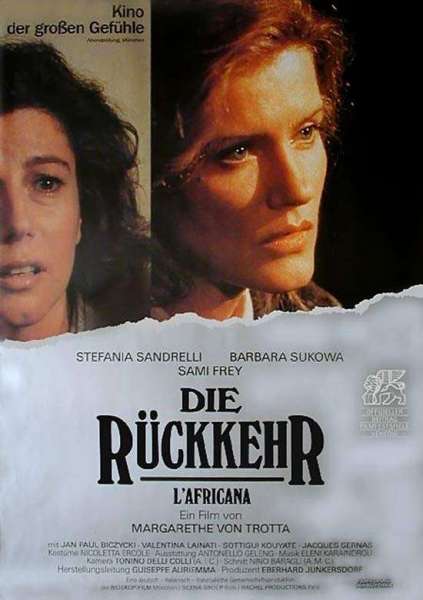
If you like this film, let us know!
The African Woman (German: Die Rückkehr, Italian: L'africana, also known as The Woman from Africa) is a 1990 German-Italian-French romance-drama film directed by Margarethe von Trotta. It was entered into the main competition at the 47th Venice International Film Festival.
Actors

Barbara Sukowa
(Martha)
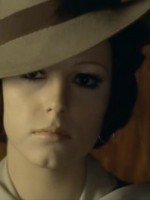
Stefania Sandrelli
(Anna)
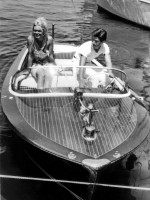
Sami Frey
(Victor)

Jacques Sernas
(Dr. Wargnier)

Pierre Deny

Sotigui Kouyate
Comments
Leave comment :
Suggestions of similar film to The African Woman
There are 133 films with the same actors, 13 films with the same director, 61757 with the same cinematographic genres, to have finally 70 suggestions of similar films.If you liked The African Woman, you will probably like those similar films :
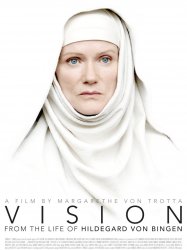 , 1h51
, 1h51Directed by Margarethe von Trotta
Genres Drama, Historical
Themes Films about music and musicians, Films about religion, Films about classical music and musicians, Musical films
Actors Barbara Sukowa, Heino Ferch, Hannah Herzsprung, Sunnyi Melles, Lena Stolze, Alexander Held
Rating64%





In Vision, New German Cinema auteur Margarethe von Trotta (Marianne and Julianne, Rosa Luxemburg and Rosentrasse) tells the story of Hildegard of Bingen (Barbara Sukowa) the famed 12th century Benedictine nun, Christian mystic, composer, philosopher, playwright, physician, poet, naturalist, scientist and ecological activist. Hildegard was a multi-talented, fully grounded, highly intelligent woman who was forced to hide her light. The modern world's first female rebel who re-transmitted her visions to the world for the greater glory of God and mankind. Regine Pernoud has called Hildegard “the inspired conscience of the 12th century,” the “Prophetissa Teutonica” and the “Jewel of Bingen.” Pope John Paul II has called her “a light to her people and for her time, she continues to shine even more brightly today.

Hannah Arendt (2012)
, 1h53Directed by Margarethe von Trotta
Origin German
Genres Drama, Biography
Themes Films about writers, Philosophie, Films about religion, Political films, Films about Jews and Judaism
Actors Barbara Sukowa, Janet McTeer, Nicholas Woodeson, Julia Jentsch, Axel Milberg, Megan Gay
Rating70%





As the film opens Eichmann has been captured in South America. It is revealed that he escaped there via the "rat line" and with forged papers. Arendt, now a professor in New York, volunteers to write about the trial for The New Yorker and is given the assignment. Observing the trial, she is impressed by how ordinary and mediocre Eichmann appears. She had expected someone scary, a monster, and he does not seem to be that. In a cafe conversation in which the Faust story is raised it is mentioned that Eichmann is not in any way a Mephisto (the devil). Returning to New York, Arendt has massive piles of transcripts to go through. Her husband has a brain aneurysm, almost dying, and causing her further delay. She continues to struggle with how Eichmann rationalized his behavior through platitudes about bureaucratic loyalty, and that he was just doing his job. When her material is finally published, it immediately creates enormous controversy, resulting in angry phone calls and a falling out from her old friend, Hans Jonas.
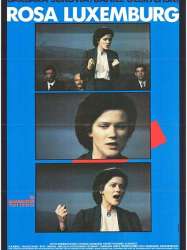
Rosa Luxemburg (1986)
, 2h3Directed by Margarethe von Trotta
Origin German
Genres Drama, Biography, Historical
Themes Politique, Political films
Actors Barbara Sukowa, Daniel Olbrychski, Otto Sander, Adelheid Arndt, Jürgen Holtz, Doris Schade
Rating68%





Polish socialist and Marxist Rosa Luxemburg dreams about revolution during the era of German Wilhelminism. While Luxemburg campaigns relentlessly for her beliefs, getting repeatedly imprisoned in Germany as well as in Poland, she spars with lovers and comrades until the ambitious leader is assassinated by Freikorps for her leadership in the Spartacist uprising after World War I in 1919.

Marianne and Juliane (1981)
, 1h46Directed by Margarethe von Trotta
Origin German
Genres Drama, Historical
Themes Films about families, Films about terrorism
Actors Barbara Sukowa, Rüdiger Vogler, Julia Biedermann, Doris Schade, Vérénice Rudolph
Rating72%





Two sisters, both dedicated to women's civil rights, fight for the same cause, although in very different ways. The story is interspersed with flashbacks into the sisters' childhood.
 , 1h50
, 1h50Directed by Margarethe von Trotta
Origin German
Genres Drama, Biography, Historical
Themes Films about religion
Actors Barbara Sukowa, Heino Ferch, Hannah Herzsprung, Alexander Held, Lena Stolze, Paula Kalenberg
Rating64%





À huit ans, Hildegarde de Bingen est envoyée par ses parents à l'abbaye de Disibodenberg ; elle reçoit l'éducation de Jutta von Sponheim et est initiée à la médecine et à l'herboristerie. Lorsque Jutta meurt, elle lui succède comme abbesse et enseigne aux religieuses la théologie, la médecine et la botanique. Un jour, elle confesse au moine Volmar, qu'elle a eu des visions religieuses ; il en informe son abbé qui le rapporte à l'évêque de Mayence. Une commission vérifie l'exactitude des visions et se retire. Seul le pape peut juger. Il demande au grand théologien Bernard de Clairvaux de la rencontrer. Ce dernier croit aux visions et conseille le pape ; Hildegarde peut désormais écrire et publier ses visions.
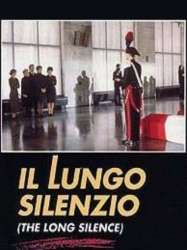
The Long Silence (1993)
Directed by Margarethe von Trotta
Genres Drama
Actors Carla Gravina, Jacques Perrin, Paolo Graziosi, Agnese Nano, Antonella Attili, Alida Valli
Rating65%





 , 1h33
, 1h33Directed by Margarethe von Trotta
Origin German
Genres Drama
Actors Tina Engel, Katharina Thalbach, Marius Müller-Westernhagen, Josef Bierbichler
Rating66%





Worried about the prospects of her children's day care center and running out of money, Christa Klages, a young mother, robs a bank with the help of her lover Werner Wiedemann and another friend. When Werner is killed during the heist and when it becomes clear that the police are after her, Christa flees to Portugal to seek help from another friend, Ingrid Häkele, a situation that threatens both women's safety.

The Promise (1995)
, 1h55Directed by Margarethe von Trotta
Genres Drama, Comedy-drama, Romance
Actors Corinna Harfouch, Eva Mattes, Meret Becker, Tina Engel, Hark Bohm, Monika Hansen
Rating66%





À Berlin, en 1961. Konrad et Sophie, deux jeunes étudiants amoureux vivant à Berlin-Est tentent de passer à l’Ouest par les égouts, peu après la construction du mur. Ils sont séparés lors de leur fuite, seule Sophie parvenant à passer à l'Ouest. Konrad est enrôlé dans l’armée puis suit des études scientifiques. Il souffre beaucoup de l'omniprésence de la Stasi. Les deux amoureux se retrouvent à Prague en 1968, lors du Printemps de Prague. Ils décident de vivre ensemble dans la capitale de la Tchécoslovaquie mais sont à nouveau séparés par l'invasion soviétique. Sophie attend un enfant de Konrad. Cet enfant leur permet de se rencontrer de loin en loin. Ils se marient tous les deux de leur côté, abandonnant l'espoir de vivre ensemble. Vingt-sept ans après leur séparation, Konrad et Sophie se retrouvent au milieu de Berlinois en liesse. Nous sommes le 9 novembre 1989.

Rosenstrasse (2003)
, 2h10Directed by Margarethe von Trotta
Origin German
Genres Drama, War, Historical
Themes Films about religion, Political films, Films about Jews and Judaism
Actors Maria Schrader, Katja Riemann, Martin Wuttke, Doris Schade, Jürgen Vogel, Fedja van Huêt
Rating66%





In the present day, a widow mourns the death of her husband. She covers up the TV set and all the mirrors in the house.

Sheer Madness (1983)
, 1h45Directed by Margarethe von Trotta
Origin German
Genres Drama
Themes Buddy films
Actors Hanna Schygulla, Angela Winkler, Vladimir Yordanoff, Irene Clarin, Axel Milberg, Margarethe von Trotta
Rating65%





 Connection
Connection